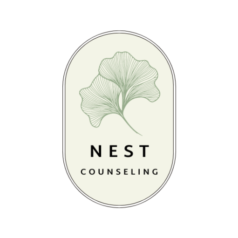Welcoming a new baby is an exciting adventure, but it can also be really scary. Postpartum anxiety is a common experience that affects many new parents, and it’s important to address it with care and understanding. If you’re feeling overwhelmed, know that you’re not alone, and there are effective ways to find balance and support.
What is Postpartum Anxiety?
Postpartum anxiety is more than just occasional worries about your baby’s well-being. It involves intense, persistent anxiety that can interfere with daily life. Common symptoms include excessive worry about your baby’s health, feeling overwhelmed by parenting responsibilities, physical symptoms like rapid heartbeat or sweating, and having difficulty relaxing or sleeping.
Why Does Postpartum Anxiety Happen?
Postpartum anxiety can stem from a combination of hormonal changes, the stress of adjusting to a new baby, sleep deprivation, and a shift in your identity and responsibilities. It’s a complex mix of physical, emotional, and environmental factors that can impact any new parent, regardless of how prepared they feel. While most new parents have some worries, postpartum anxiety is intense, constant worries that impact all areas of your life. It can impact your sleep, your relationships, your physical health and your ability to work and parent.
Recognizing the Signs
Understanding the signs of postpartum anxiety can help you seek support early. Some common indicators include:
- Constant Worry: Feeling an overwhelming sense of worry or dread about your baby’s health or your ability to care for them.
- Physical Symptoms: Experiencing rapid heartbeat, muscle tension, or excessive sweating without a clear cause.
- Sleep Disturbances: Struggling with insomnia or disrupted sleep, even when your baby is sleeping.
- Difficulty Relaxing: Finding it hard to unwind or relax, even when you have time to yourself.
Effective Strategies for Managing Postpartum Anxiety
- Talk About It: Sharing your feelings with a trusted friend, family member, or therapist can provide relief and perspective. Remember, reaching out for support is a sign of strength, not weakness.
- Prioritize yourself: Prioritizing yourself after having a baby can seem impossible, but can support your wellbeing. This might include taking short breaks, enjoying a hobby, or simply taking a few minutes to facetime a friend.
- Set Realistic Expectations: Adjusting to life with a new baby takes time. It’s okay to set small, manageable goals and acknowledge your achievements, no matter how minor they may seem.
- Seek Professional Help: If your anxiety feels overwhelming or persistent, a mental health professional can offer support through therapy and, if necessary, medication.
- Join a Support Group: Connecting with other new parents who are experiencing similar feelings can provide comfort and practical advice. Many communities and online platforms offer support groups specifically for postpartum anxiety. Postpartum Support International offers online, free support groups.
Postpartum mental health conditions impact up to one in five women. You are not alone and you deserve to be well. With support, you can feel better. Reach out to us at Nest Counseling if you need professional support. Email megan@nest-counseling.com to schedule a consultation with a licensed therapist.
